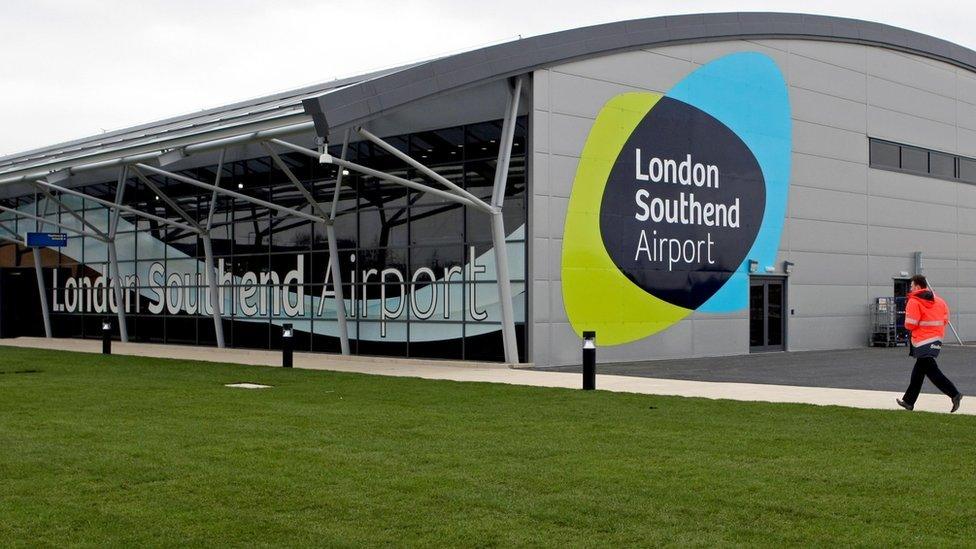'I spent £70,000 on pilot training but can't get a job'
- Published
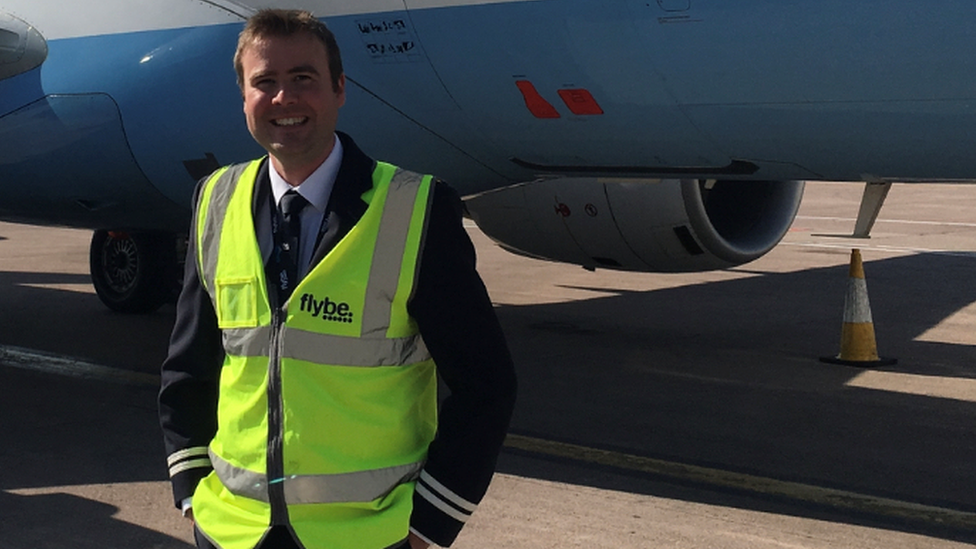
Timothy Short had to give up being a pilot and become a train driver
Timothy Short loves flying and has dreamt of being a pilot since he was a child.
It's seen by many as being a glamorous and exciting job, flying to beautiful locations with a big salary.
But like many other qualified pilots, he is no longer in the aviation industry, which is now facing a very different reality after the devastation caused by the coronavirus pandemic.
Pilots have been made redundant or had schedules reduced, while there are few new opportunities.
What's more, the training costs a lot of money - and newly qualified pilots have been telling BBC Radio 4's You and Yours programme they are now in significant debt, with no jobs to go into.
"There's an urban myth that all pilots' mums and dads are multi-millionaires," says Timothy.
His training cost more than £70,000, but he's been hit twice by turbulence in the industry.
First, his employer Flybe went into liquidation in 2020. Then, just as he changed jobs to British Airways, flights were grounded by the global pandemic and the work dried up.
Timothy took out loans to pay for his training and is now paying back £800 a month.
Salaries squeezed
According to a survey conducted in January this year, by aviation publisher FlightGlobal and Goose recruitment, only 43% of the world's pilots are still flying for a living.
Things have got so bad that the industry is advising would-be pilots to consider another profession.
Phil Flowers, from the Independent Pilots Association (IPA), says: "I wouldn't advise anyone to be a pilot. Frankly, don't do it.
"We estimate that the overall reduction in UK pilot numbers at the moment to be between 15% and 20%. In short, there's probably been a loss of around 5,000 pilots."
Timothy says that, contrary to popular belief, pilots do not earn a lot of money when they qualify. He says that's because of the rise of low-cost airlines that pay lower salaries.
"Most First Officers earn less than £40,000 a year. For Flybe, I was earning less then £30,000 when I started and a maximum of £45,000 a year," he says.
There's also a myth that pilots have their training paid for by the airlines. In fact, many pilots pay for training themselves, with loans and help from families. It's common for parents of trainees to remortgage their homes and take out loans to pay for the qualifications.
Pilots say the aviation charity Pilots Together has helped them when they've struggled during the pandemic. The charity helped Timothy find a new job as a train driver.
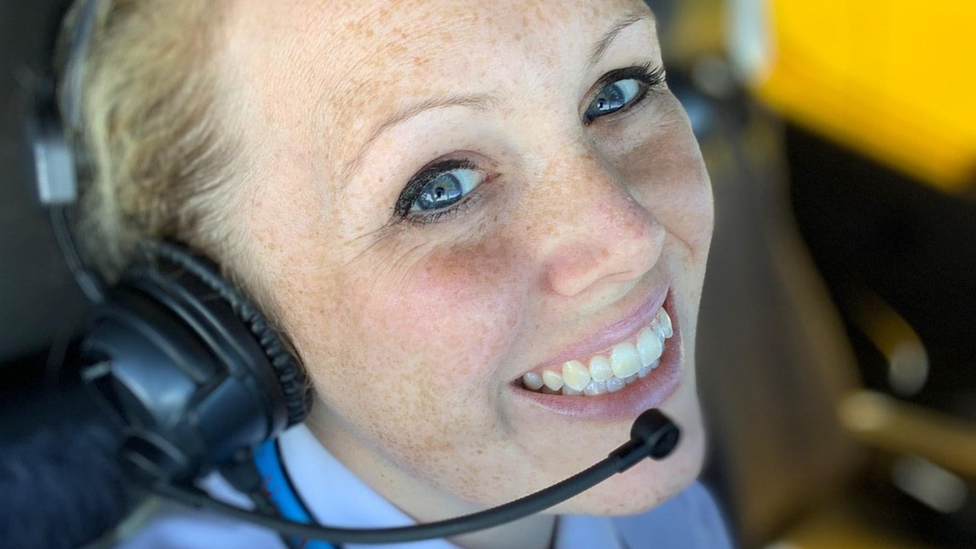
Katy Lee is still flying, but much less than before the pandemic
Katy Lee is a pilot and trustee for Pilots Together. She says her flying schedule has halved: "Realistically, I fly maybe once a month. None of us are totally confident we will have a job in six months' time."
Katy is advising young people who want to become pilots that there's no future in aviation at the moment.
She advises not to spend tens of thousands of pounds on training and licence fees, especially if it means your parents are remortgaging their house to pay for it.
Mr Flowers of the IPA says it's difficult to put an exact figure on the devastation the pandemic has done to the aviation industry.
However, he adds: "If we assume that the 20% figure of pilot job losses translates into similar financial losses, then the economic loss is about £10.4bn, tax loss £1.74bn and total employment loss across aviation is currently 200,000 jobs."
Related topics
- Published15 October 2020
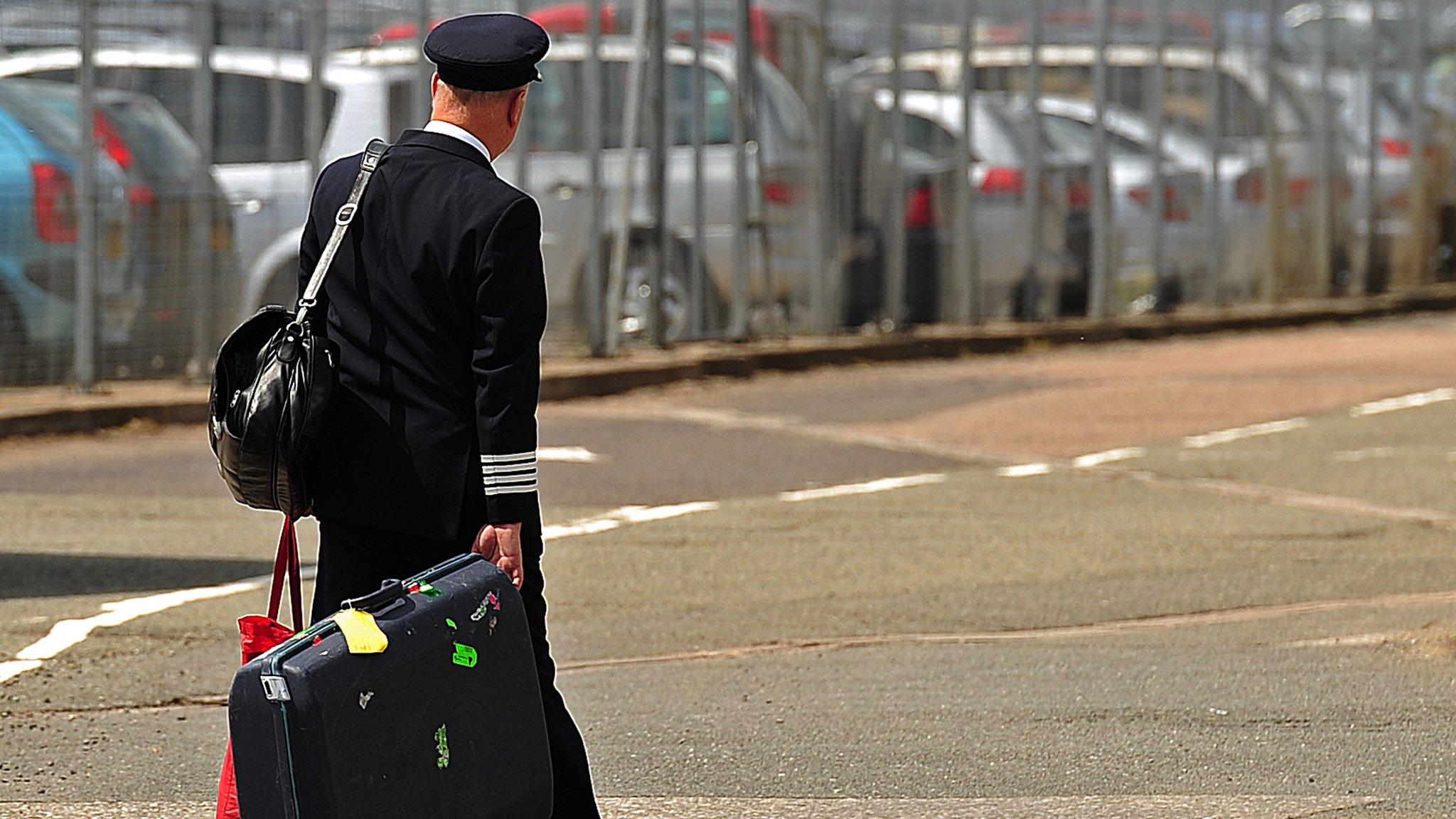
- Published8 June 2021
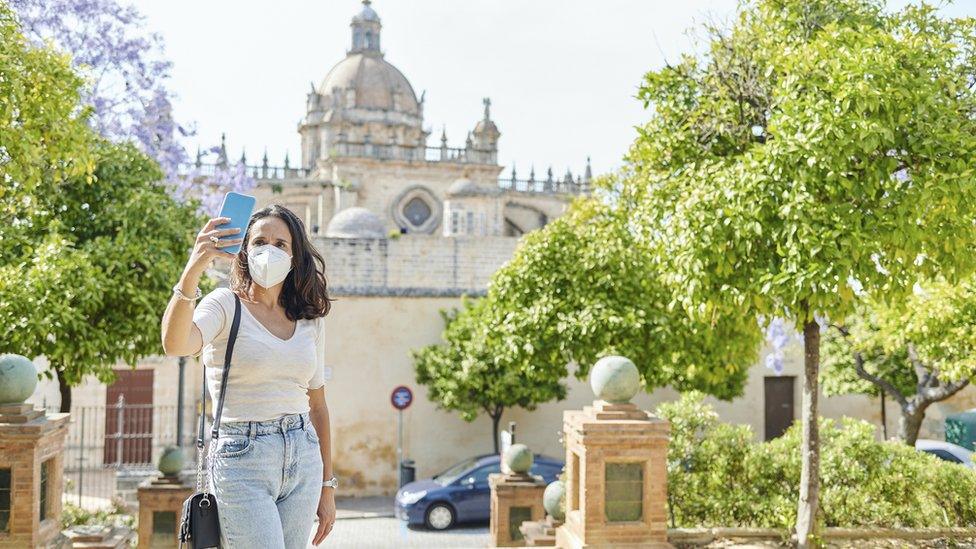
- Published4 June 2021
